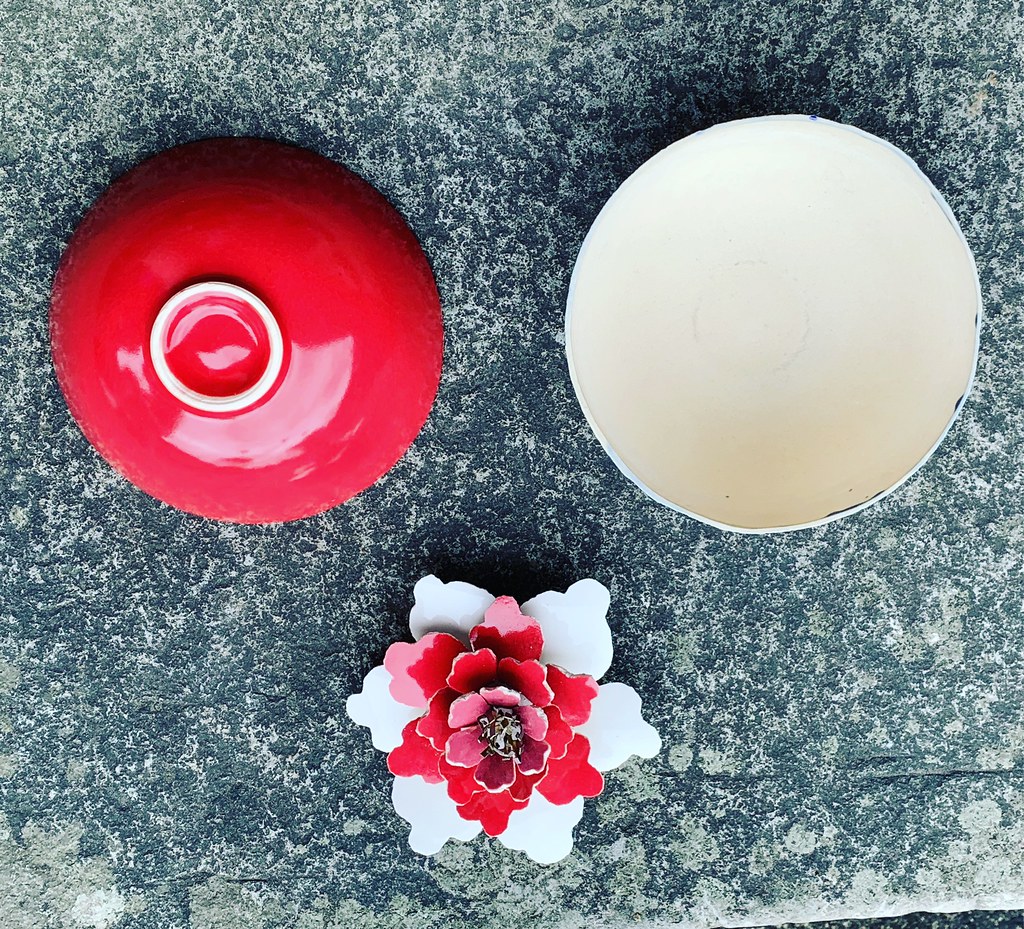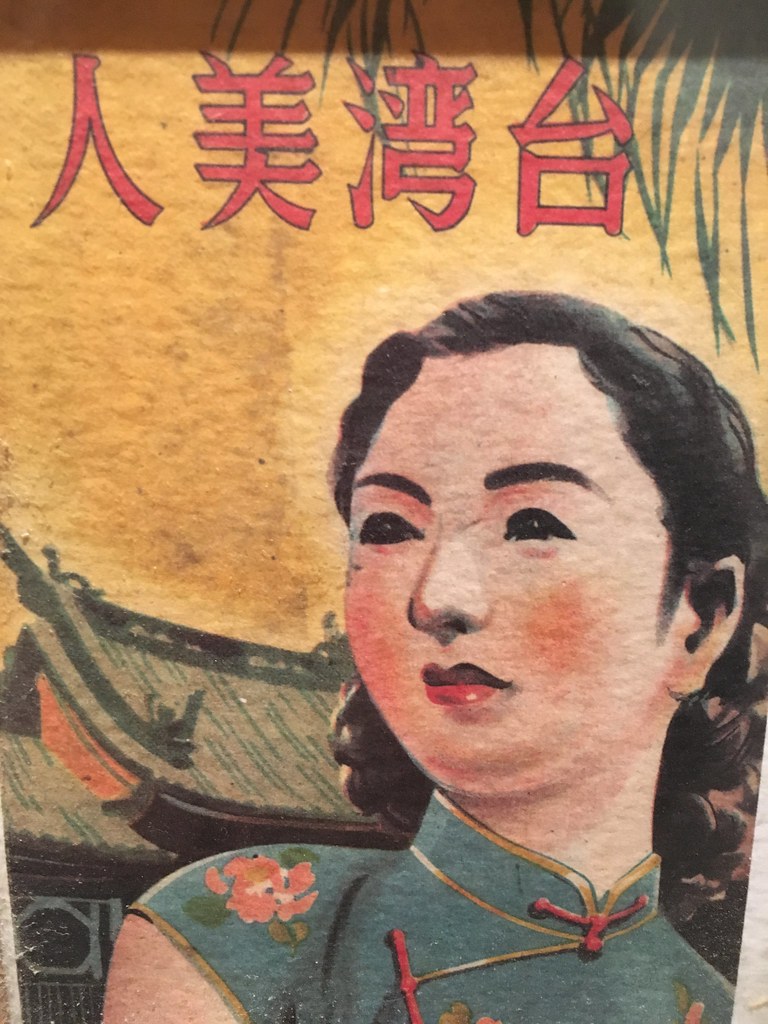 |
| I am reasonably sure that not one of these women is real |
Once a year or so, we go to Kinmen for work and then plan an extra day to relax, drive around and do whatever, usually booking a traditional 洋樓 (yánglóu, or 'foreign style mansion', though they don't look terribly 'foreign') for a few nights.
This year, our first stop was the Military Brothel Exhibition Hall in Jinhu township along Qiongjing Road (瓊徑路) - if you want to go there, it's easiest to just plug it into Google Maps. I've been aware of ROC military comfort women for some time (yes, quite a bit like comfort women forced to service the Japanese military in World War II), and that the practice was particularly predominant on Kinmen as it was a major military outpost.
Having felt for some time that the issue of Japanese comfort women, while also important, has been given priority over ROC comfort women with the issue manipulated for political purposes, I wanted to see how this museum portrayed the issue. Did it get anywhere near actually tell the story of women forced into prostitution to 'meet the needs' of ROC soldiers?

No.
I learned more about the soldiers who went to the brothels, and how the brothels operated on a bureaucratic level, than the women who actually worked in them.
The exhibit, which is in English and Mandarin, hemorrhaged copious reams of verbiage justifying the 'needs' of the soldiers (as above - and this wasn't the only culprit). A huge percentage of the words on the wallboards attempted to convince visitors that these 'teahouses' were necessities of war, because how could our boys on the front line continue to fight without getting their sexual requirements met?
I don't really need convincing that any given group of people (except ace folks) spend a large percentage of their time thinking about, wanting to and trying to get nasty. That's just human. Just about everyone likes to bone down. Fine. And I don't need convincing that sex work is important or necessary - I'm in favor of legalized prostitution, in a system in which the sex workers themselves have power over their work - not a pimp and certainly not a government.
But the exhibit also spent a great deal of time telling you about the different 'tea houses' all over Kinmen and why they existed or how successful they were. You even got to learn about the quality of 'service' at each one and what 'grade' each teahouse was given (which...let me tell you. Forget wanting to work at a 'Grade D' brothel - can you imagine how insulting - and terrifying - it would be for a woman to be assigned to one?)


Every single thing gets its moment in this exhibit - except for the women. The men and their needs are centered, and there's a lot of description of the humdrum bureaucracy of the brothels. You get to see a replica of the tickets that servicemen were issued, and the rules and regulations they had to follow. There are a lot of pink and purple shades and soft floral patterns - you know, because it's women's stuff - which is an attempt to soften the truth, and was hardly the reality of the matter. The attempted romanticization is more than a little off-putting.
You heard about the women's health checks and other rules concerning their lives - including that they weren't allowed to leave, yeesh - and that they were 'recruited' as 'waiters', are expected to get the impression from this that they chose to ply their trade in Kinmen and that the military took good care of them. You could read - briefly - about how 'bitter' and miserable their lives were in Taiwan proper, trying to convince you yet again that this was a good thing for the women, and everyone was consenting. After reading that, you'll learn how often the women had pap smears, but still nothing at all about who they were as people.
The very brief text that actually discusses the women and their lives uses the phrase 'finding their way to the frontline', as though they journeyed to Kinmen of their own volition.

Of course, they did not.
In the famous case that caused the 'teahouses' of Kinmen to finally close in the late 1980s, an underaged woman (16) was tricked/forced to go to Kinmen and then, after refusing to engage in sex work, was told she had to do so for several months before she could return to Taiwan (link in Chinese).
I also have it on good authority (and the Taipei Times backs up) that most of these comfort women were not consenting and not taken care of well. Most of them were prostitutes working illegally (only 'municipal brothel' prostitution was legal) who were caught and essentially forced to work in these 'teahouses', often - as the link above mentions - made to have sex with 60-70 soldiers a day. As I highly doubt they agreed to that many clients, that essentially means they were raped 60-70 times a day.
And someone on the committee that designed this exhibit is aware of this, as you can see:

Sure, the women were not forced into prostitution as a trade, but if you write 'nor did they willingly go to support one side in a war', you are implicitly sending the message that someone forced them to do so.
That's not consenting - it doesn't matter that they were prostitutes before. You can't force someone to work for you, even if you pay them. That's slavery. The government can't knock on my door and tell me I must teach in a particular government school and then frog-march me to a classroom. This is no different just because it's sex work.
And yet, that one line in one (rather terrible) poem is the only clue that these women were essentially forced to be raped by soldiers six days a week. What's worse, the NewTalk link above describes the attempts of Kinmen-born writer (and I guess politician? It's not clear) Chen Changqing to retcon the history of military prostitution into a consensual industry in which the women were well-cared for despite the preponderance of historical evidence to the contrary.
Beyond that, the exhibition hall does not tell the stories of any of the individual women who worked as military prostitutes, even though many are still alive. One could easily ask them, and many of them would likely want their stories told.
You don't even see pictures - just stylized anime-like airbrushed cartoons of generic beautiful women. They don't actually exist. Even though surely photos of the actual women who worked in these teahouses could be found, and photographs of still-living ones could be taken. I'm sure some of them (though surely not all) would give consent for their images to be used, if exhibited as a part of a well-designed and impactful exhibit. But, of course, nobody asked them.
Much easier to write a few platitudes about 'bitter lives' and place them next to soft-focus cartoon women than to face what your government did to real, actual women.

I have to wonder why they did it this way. Was it because whoever was in charge of this didn't want to make the ROC government look bad (especially on Kinmen, where the KMT remain popular)? Was it because they - though possibly not the women themselves, given the activism of the women who worked in municipal brothels in Taipei - regard the actual work of such women so shameful that they felt they were doing these women a favor by romanticizing it while keeping the women's actual stories quiet? Was it because the moment you tell the truth of what the government did to these women, it raises the question of compensation? Or was it straight up sexism: did whoever was put in charge of designing this just not even consider that the women's stories mattered?
The government has been much more forthright about the work of Japanese-era comfort women from Taiwan. A museum was created for them, while quietly trying to squash the attempts of ROC-era comfort women to do the same thing, as the links above show. Is this because the Japanese era is in the more distant past, and most of those women have died? Is it because it allows them to blame Japan, not themselves - blame which can be strategically trotted out for political purposes? Don't forget that the previous administration made a point of souring Taiwan's relations with Japan as much as possible, in order to garner favor with China. Is it because the women forced into sex work in the Japanese era often weren't prostitutes to begin with, so it's less 'shameful'? Or is it perhaps all of these?
In the end, it bothers me not just that this story was told badly, but that politics seems to determine who gets their stories told at all - and it never seems to actually be about the women.

I want to be pleased that the government isn't trying to pretend this part of Taiwan's history never happened. I want to rejoice that they're not trying to bury it as so many governments do to the more unsavory stories of their past.
But I can't - I just can't believe someone thought it was a good idea to set up a 'military brothel exhibition hall' and then spend the whole time justifying the brothels' existence, without even trying to tell any of the honest, true, detailed, human stories of the actual women who worked there.
If nobody is willing to have their story included - which is possible, but I doubt would be the case - then you can at least tell the absolute truth of how the women came to work there and what their lives were actually like beyond a list of 'rules and regulations'.
If there's one thing this exhibit can learn from museums cataloguing horrible things which exist around the world, it's that you don't need to justify the past. You're not fooling anyone. We know that romanticization is just one step removed from erasure.
It happened, and what matters now is that we look at it squarely and honestly, and whenever possible we try to make it right. The Military Brothel Exhibition Hall does not do that, and all I can suggest is that they take a good, hard look at their first attempt and try to do better.




